Behind the Bar: What Makes a Drink 'Signature'; at a Private Event?
- Dr. Bartending
- Oct 8
- 4 min read
Picture this: Your guests walk up to the bar, and instead of ordering "the usual," they're asking for something called "Midnight in Manhattan" or "Sarah's Secret Garden."
That's the magic of a signature cocktail.
But what transforms a regular drink into something truly memorable? What makes it signature?
The answer isn't just about mixing spirits and calling it a day. It's about creating liquid storytelling.
The Psychology of Personalization
A signature drink works because it taps into something deeper than taste buds: it connects with memory and meaning.
The human brain loves patterns and stories. When you name a cocktail after the couple's first vacation or incorporate flavors from their favorite dessert, you're not just serving alcohol. You're serving nostalgia in a glass.
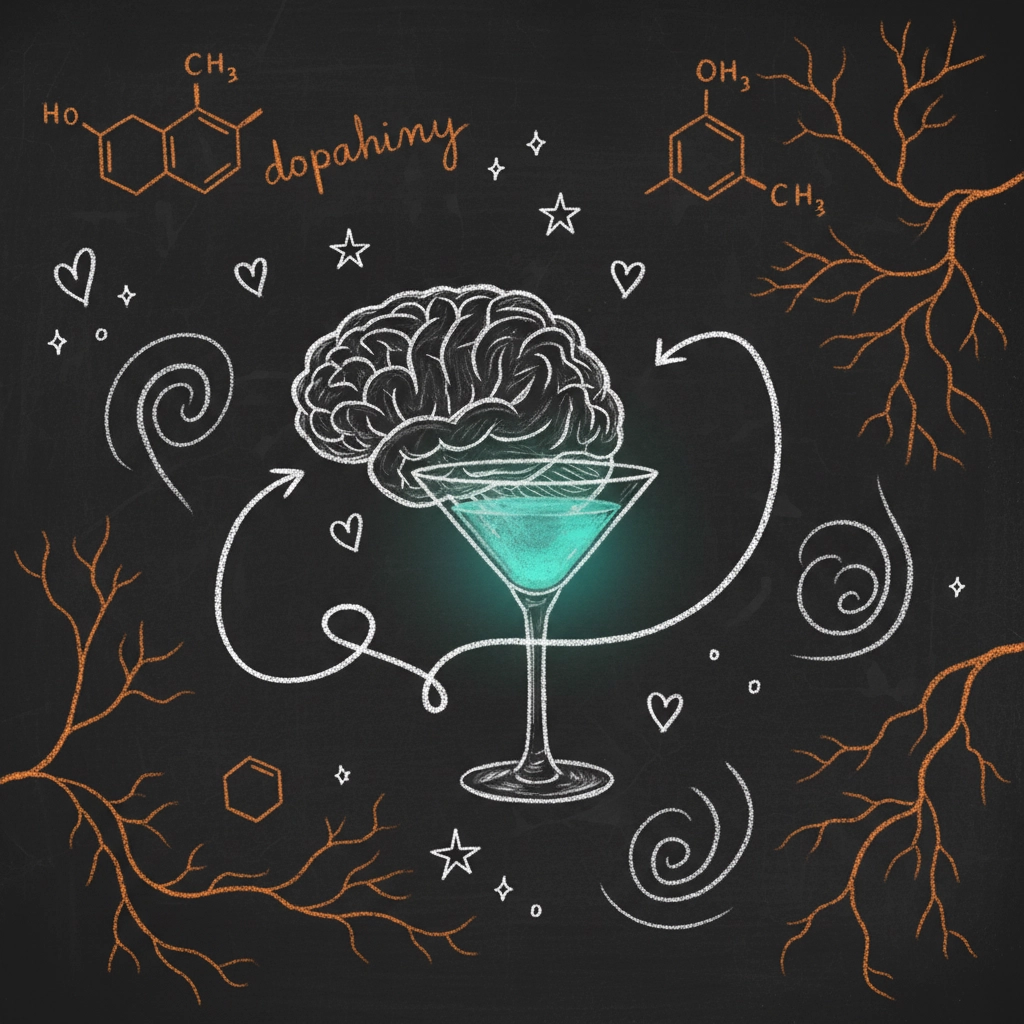
Consider the chemistry here: dopamine (our pleasure hormone) gets released when we encounter something familiar yet novel. A signature drink hits that sweet spot perfectly.
It's familiar enough to feel comfortable.
Novel enough to feel special.
The Flavor Foundation
Before we get fancy with names and garnishes, let's talk about what actually makes a drink work.
Balance is everything.
Every memorable signature cocktail follows the fundamental equation:
Sweet + Sour + Bitter + Alcohol = Harmony
But here's where the science gets interesting. Your taste buds have different sensitivity levels throughout the evening. Early in the party, guests prefer brighter, more acidic flavors. Later, as palates get warmer and more relaxed, they gravitate toward deeper, more complex profiles.
Smart signature cocktails account for this shift.
Temperature matters too.
Cold drinks feel more refreshing and seem less alcoholic than room temperature ones. This is why signature cocktails often feature plenty of ice, fresh citrus, or cooling herbs like mint.
The molecular structure of alcohol changes how we perceive other flavors. Higher alcohol content can mask subtle ingredients, while lower proof allows delicate botanicals to shine through.
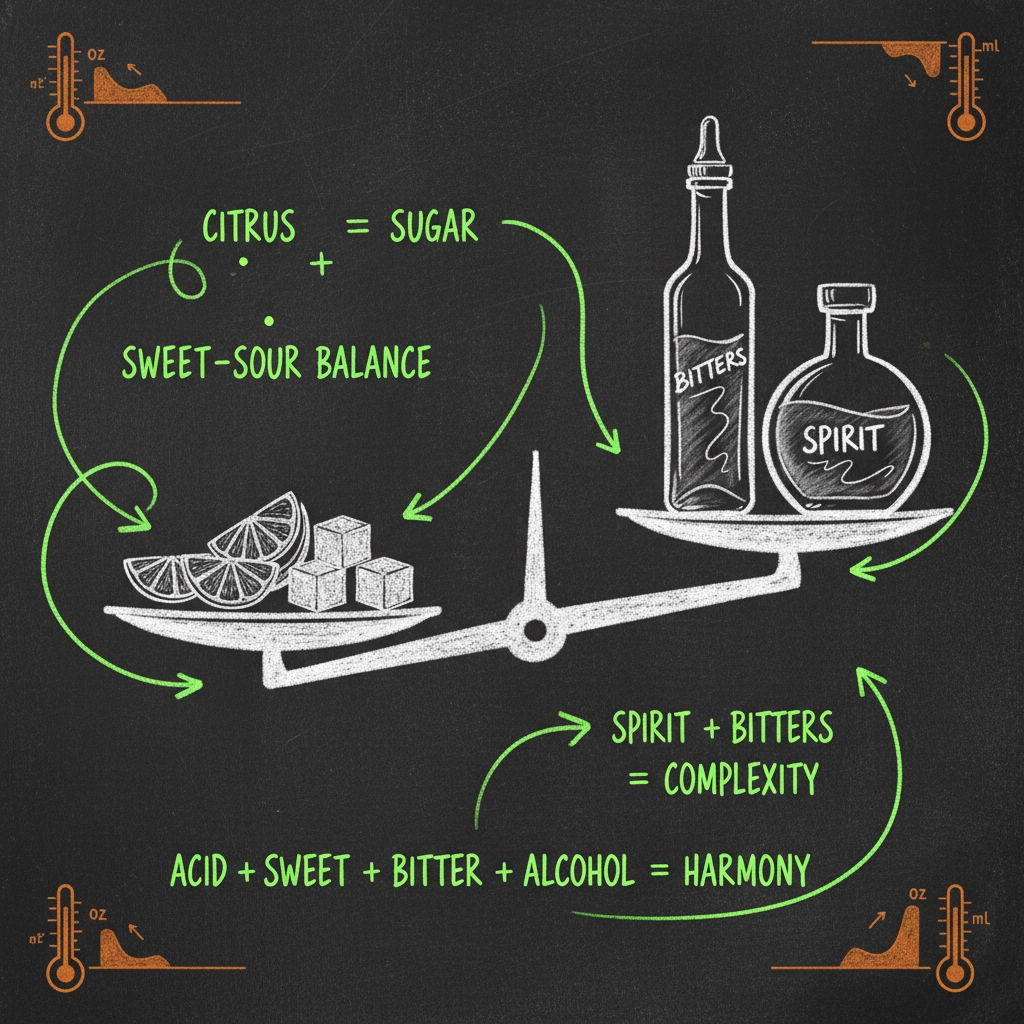
Visual Chemistry in Action
Your eyes taste before your mouth does.
This isn't metaphorical: it's neuroscience. Visual cues trigger anticipation and actually influence flavor perception. A signature drink's appearance sets expectations that your brain then tries to fulfill.
Color psychology plays a huge role:
Blue drinks feel sophisticated and mysterious
Pink suggests sweetness and celebration
Deep amber conveys warmth and comfort
Clear cocktails seem clean and crisp
The garnish isn't decoration: it's aromatherapy. When you smell rosemary or citrus oils as the glass approaches your nose, those compounds are literally changing your brain's interpretation of the first sip.
Glass selection affects perception too.
Wide-rimmed glasses release more aromatic compounds.
Tall glasses make drinks seem more refreshing.
Heavy glasses suggest premium quality.
The Art of Signature Naming
Here's where creativity meets psychology.
A great signature cocktail name does three things:
Creates curiosity
Connects to the story
Sticks in memory
"Wedding Punch" tells you nothing and excites nobody.
"Love Potion No. 9" immediately sparks conversation.
The best names either reference the couple's story ("First Kiss Fizz") or play with familiar concepts in unexpected ways ("Corporate Ladder Climber" for a promotion party).
Pro tip: Names with alliteration or rhyme are 40% more likely to be remembered. There's actual cognitive science behind why "Midnight Manhattan" sticks better than "Dark Whiskey Drink."
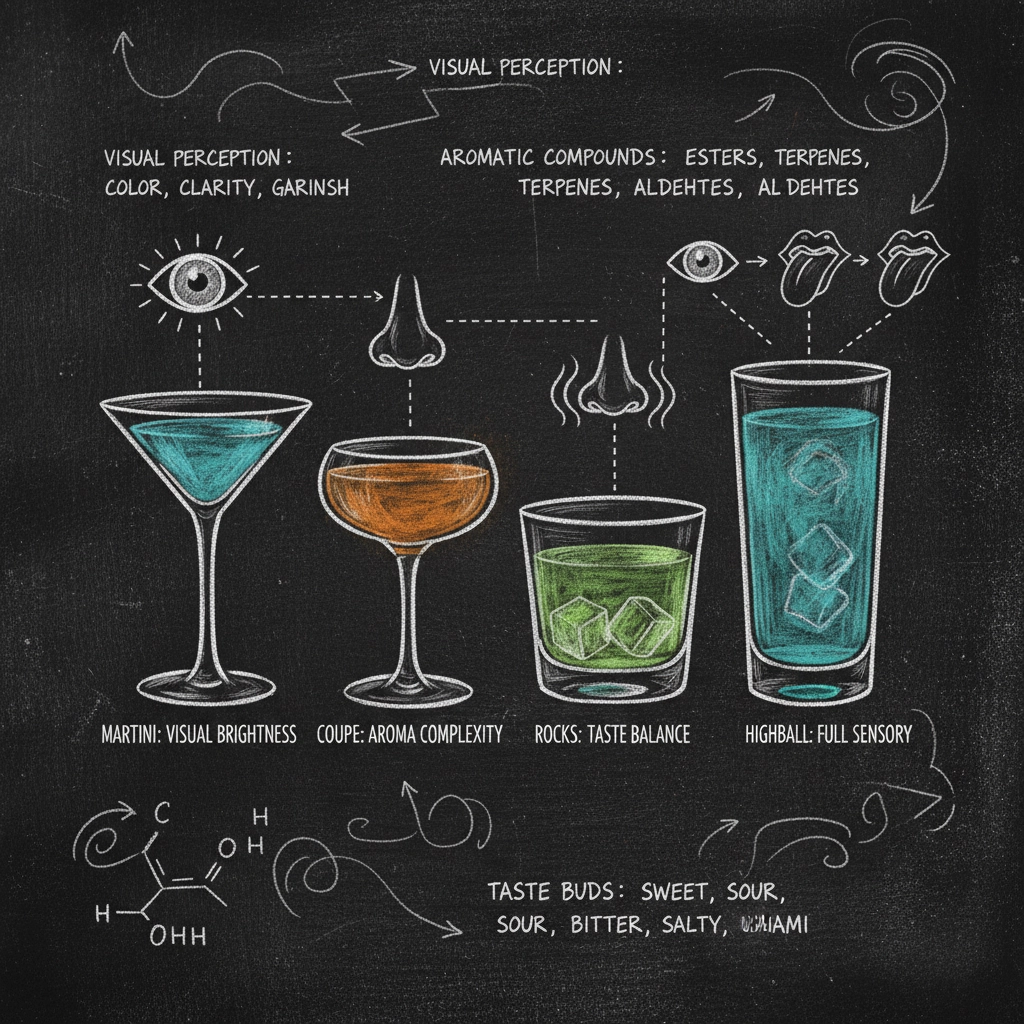
Batch vs. Build: The Service Science
Here's something most people don't consider: how the drink gets made affects the entire party experience.
Batched cocktails (pre-mixed and served from dispensers) work brilliantly for signature drinks because:
Consistency across every glass
Faster service means shorter lines
Visual impact with beautiful dispensers
Guests can serve themselves
Built-to-order signature cocktails work when:
The preparation becomes part of the show
You want interaction between bartender and guests
The drink requires fresh elements that don't store well
The choice depends on your event's energy. Birthday parties often benefit from the theater of fresh-built drinks. Corporate events typically prefer efficient, batched options.
Seasonal Molecular Shifts
Temperature and humidity actually change how we perceive flavors.
Summer palates crave:
Higher acidity (lemons, limes)
Cooling compounds (mint, cucumber)
Lower alcohol content
More dilution from ice
Winter palates prefer:
Warming spices (cinnamon, nutmeg)
Richer textures (cream, egg whites)
Higher proof spirits
Less dilution
A truly signature drink considers the season and adjusts accordingly. That same couple might love a gin-based "Garden Party" signature in June but prefer a bourbon "Fireside Chat" in December.
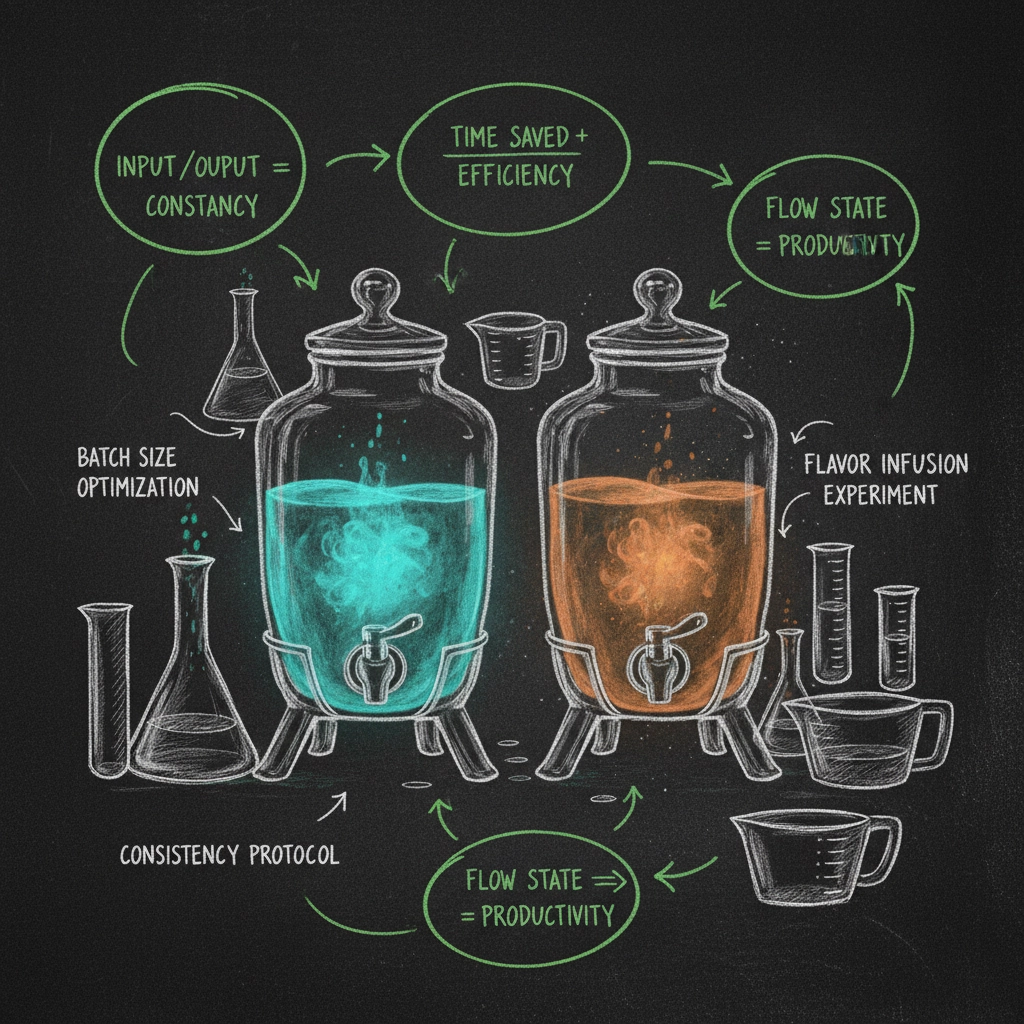
The Memory Formula
The most successful signature drinks become part of the story guests tell later.
"Remember that amazing drink at Sarah's wedding?"
This happens when three elements align:
Surprise: Something unexpected in flavor or presentation
Delight: It actually tastes fantastic
Connection: It feels meaningful to the occasion
The surprise could be a unique garnish, an unusual flavor combination, or even a fun serving method. The delight comes from proper balance and quality ingredients. The connection ties it all back to why everyone's gathered.
Beyond the Recipe
Here's what separates good signature drinks from legendary ones:
They solve a problem.
Maybe your guests don't usually drink cocktails: so you create something approachable with familiar flavors.
Maybe it's a hot outdoor wedding: so you design something incredibly refreshing.
Maybe it's a corporate networking event: so you craft something that facilitates conversation.
The best signature cocktails aren't just delicious. They're strategic.
They create moments.
When someone orders "The Birthday Surprise" and discovers it changes color when you stir it, you've created a moment worth sharing on social media.
When the signature drink incorporates ingredients from the couple's first-date restaurant, you've created an emotional moment.
When the company's signature cocktail subtly references their latest product launch, you've created a memorable brand moment.
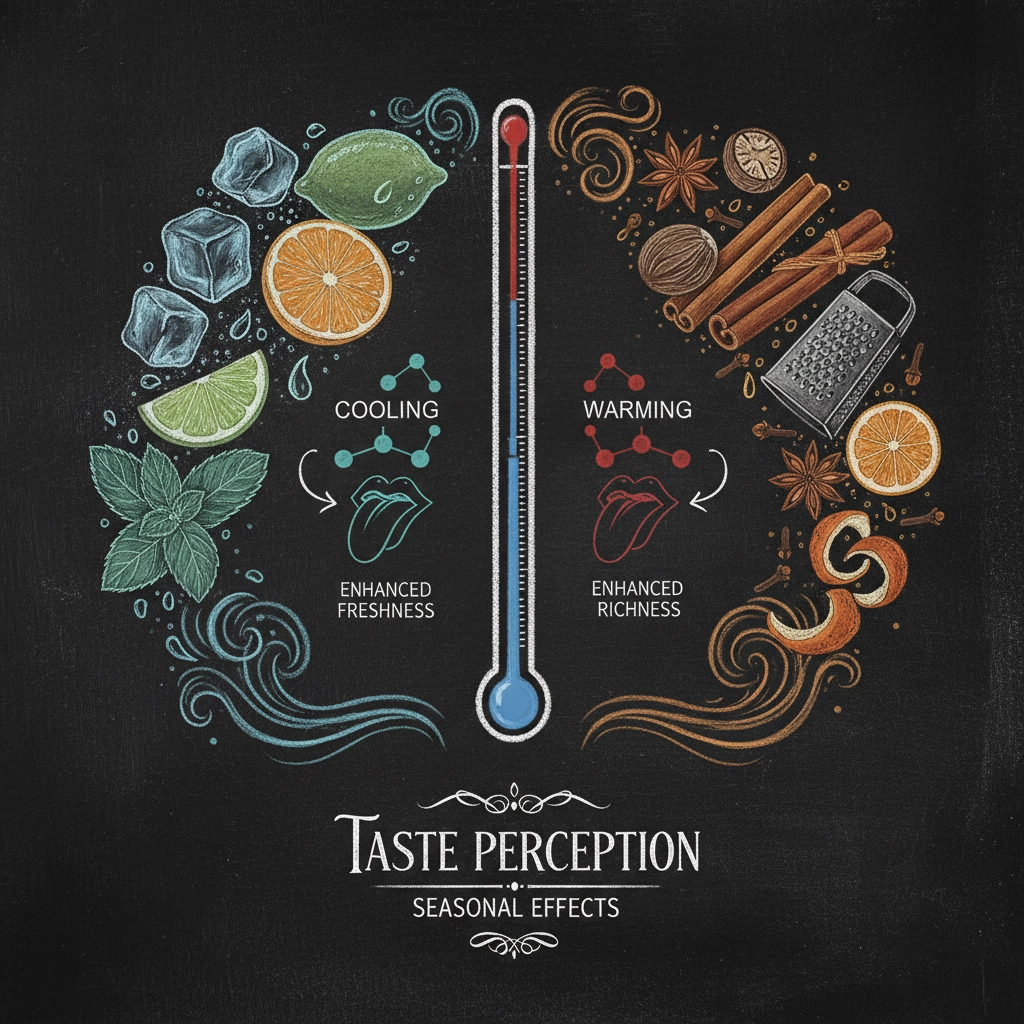
The Signature Effect
Here's the beautiful thing about signature cocktails: they transform every guest into a participant in your story.
Instead of ordering generic drinks, they're choosing to be part of something unique to this moment, this celebration, this group of people.
That psychology changes everything. It turns drinking into participating. It makes your event feel exclusive and intentional.
And here's the secret that event hosts don't always realize: the signature cocktail becomes a gift to your guests. It's something they experienced nowhere else. Something that exists only in their memory of your celebration.
That's not just good bartending.
That's liquid alchemy.
Ready to create your own signature cocktail experience? Every great experiment starts with the right lab equipment and a brilliant hypothesis.
Comments